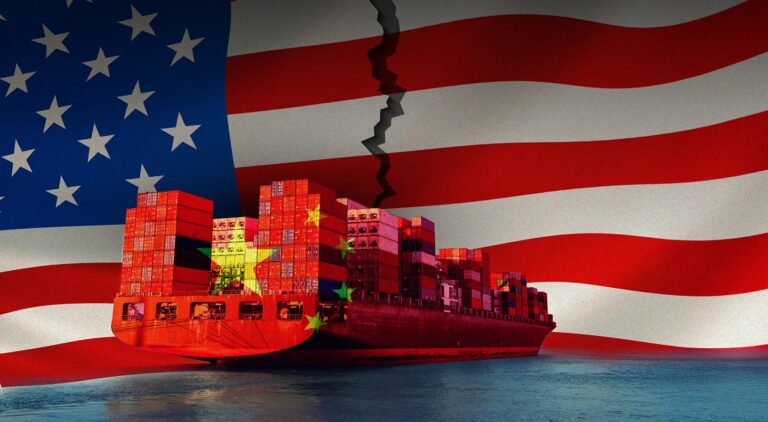Leaders from across Asia and beyond gathered in Tianjin this week for the Shanghai Cooperation Organization (SCO) summit, where pressing global issues took center stage. Among the key topics dominating discussions were the ongoing US trade tensions and the evolving dynamics between India and China-two developments with far-reaching implications for regional stability and economic cooperation. As member states seek to navigate these challenges, the summit provided a critical platform for dialogue amid shifting geopolitical landscapes.
US Trade War Implications Dominate Discussions at SCO Summit in Tianjin
The recent Shanghai Cooperation Organisation (SCO) summit in Tianjin saw member states grappling with the escalating tensions stemming from the ongoing US trade war. Delegates expressed deep concerns over the potential disruptions to global supply chains and the broader implications for regional economic stability. Discussions highlighted the urgent need for enhanced intra-regional cooperation to insulate member economies from external pressures. Leaders emphasized the importance of diversifying trade partnerships and boosting economic resilience through strategic initiatives such as technology exchange and infrastructure investments.
Meanwhile, the evolving dynamics between India and China featured prominently, reflecting the complex interplay of geopolitics and economic interests within the SCO framework. Both nations underscored their commitment to maintaining dialogue despite lingering border disputes and divergent trade policies. Key points raised during the summit included:
- Strengthening bilateral trade relations to foster mutual growth and reduce dependence on third-party markets.
- Enhancing border security cooperation to prevent escalations and build trust.
- Collaborative development projects under SCO auspices aimed at boosting connectivity and economic integration.
| Country | Trade Growth Target 2024 | Focus Area |
|---|---|---|
| China | 6.5% | Technology, Infrastructure |
| India | 7.0% | Manufacturing, Logistics |
| Russia | 4.2% | Energy, Agriculture |
India China Relations Take Center Stage Amid Regional Strategic Shifts
At the heart of the recent Shanghai Cooperation Organisation summit held in Tianjin, the dynamics between India and China have emerged as a pivotal focus amid shifting geopolitical currents. Both nations underscored the desire to strengthen bilateral cooperation despite lingering border tensions and economic competition. Analysts note that this balancing act reflects Beijing and New Delhi’s recognition of their growing roles in shaping Asia’s future, with a shared emphasis on multilateralism and regional stability. Key discussion points included enhanced trade agreements, cross-border infrastructure projects, and a mutual commitment to counterterrorism efforts within the SCO framework.
Beyond the bilateral scope, the summit revealed broader strategic recalibrations influenced by the ongoing US trade war. Delegates deliberated on how evolving global trade patterns might impact regional economies, prompting an urge for diversification and resilience. Noteworthy themes highlighted by experts include:
- Greater economic integration: Expanding intra-Asian trade corridors to reduce dependence on Western markets.
- Security collaboration: Joint military exercises and intelligence-sharing initiatives to address common threats.
- Technological partnerships: Cooperative ventures in emerging technologies such as 5G and AI to spur innovation.
| Aspect | India’s Focus | China’s Approach |
|---|---|---|
| Border Management | Confidence building measures | Enhanced troop dialogues |
| Trade | Boosting exports to SCO states | Investing in Belt & Road projects |
| Security | Counterterrorism cooperation | Anti-extremism operations |
Experts Recommend Strengthening Multilateral Dialogue to Mitigate Economic Tensions
Amid escalating global economic volatility, leading analysts at the SCO summit have underscored the urgent need for enhanced multilateral engagement to ease mounting trade tensions. They advocate for a framework where dialogue transcends bilateral disputes, fostering a climate of transparency and trust among member states. This approach is seen as pivotal in addressing the ripple effects of major geopolitical frictions, particularly involving the US-China trade war and the complex India-China relationship.
Experts emphasize several key strategies:
- Establishment of regular economic forums encouraging open communication and dispute resolution.
- Promotion of cooperative trade policies that balance national interests with regional stability.
- Leveraging existing SCO platforms to monitor and mitigate protectionist tendencies.
- Enhancing data sharing and joint research initiatives on economic impacts within the region.
| Recommended Action | Expected Outcome | Timeframe |
|---|---|---|
| Quarterly Multilateral Economic Dialogues | Improved transparency and reduced misunderstandings | Short-term (6-12 months) |
| Joint Trade Regulation Reviews | Aligned policies and fewer trade barriers | Mid-term (1-2 years) |
| Cross-border Economic Impact Studies | Informed decision-making and risk mitigation | Long-term (2+ years) |
Concluding Remarks
As the SCO summit in Tianjin draws to a close, the intertwined challenges of the US trade war and the evolving India-China relationship remain at the forefront of regional and global discourse. With economic tensions and geopolitical complexities shaping the agenda, the outcomes of the summit will be closely watched by policymakers and analysts seeking indications of future cooperation or confrontation among these key players. The coming months will be crucial in determining whether the SCO can serve as a platform for dialogue and stability amid mounting international pressures.




